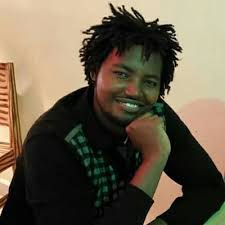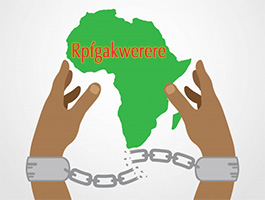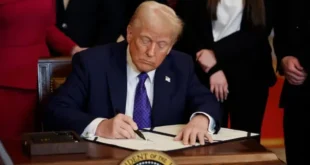More than 100 authors from around the world have written to the Rwandan president about the case of Innocent Bahati, who disappeared a year ago today
Innocent Bahati.
By: Alison Flood
Margaret Atwood, Ben Okri and JM Coetzee have joined more than 100 writers from around the world in calling on the Rwandan president to intervene in the case of the poet Innocent Bahati, who disappeared one year ago today.
According to human rights organisation PEN International, Bahati was last seen at a hotel in Nyanza district, in the Southern Province of Rwanda, on 7 February 2021. The poet, who is well-known in Rwanda and had published poetry on YouTube and Facebook, as well as regularly performing at live events, failed to return to Kigali, and his phones have been switched off since.
Media reports state that his disappearance was reported to the Rwanda Investigation Bureau on 9 February, with a spokesperson claiming that he was not in the agency’s custody, but that an investigation was “ongoing”. Bahati is also a teacher at the Green Hills Academy in Kigali.
Now more than 100 writers and artists have written to Rwandan president Paul Kagame to express their “grave concern” about Bahati’s life and whereabouts, stating their belief that Bahati’s disappearance is “in relation to his poetry and critical expression on issues affecting Rwandan society”.

“We are bringing this matter to your attention, with a plea for urgent action because, one year later, Bahati is still missing and his situation unknown. We note with concern that the Rwandan authorities are yet to disclose any progress or outcome of investigations on his case,” say the authors, led by PEN International president Burhan Sönmez, and also including major international names from Paul Auster to Gioconda Belli, Jonathan Franzen, Yann Martel, Elif Shafak and Michael Ondaatje.
They point to reports that Bahati disappeared in a similar manner in 2017 after posting a critical comment on Facebook, reappearing in police custody after several days, and subsequently being imprisoned without trial for three months, although he was not charged for any offence. Bahati was only freed after a court order.
And they highlight media reports of a speech in March 2021 attributed to the Rwandan secretary of state in charge of culture, Edouard Bamporiki, in which Bamporiki is reported to have said that “when poetry loses its way, it can mislead the public. It is for this reason that I ask you to forget the difficulties that Rwandan poetry community has known in recent times, but rather to do our part to advise and reprimand those amongst who stray from the right path.”
“Coming shortly after the disappearance of Bahati in 2021, these chilling remarks by an official of your administration are hardly coincidental. They suggest a pattern of intolerance to free poetic expression by officials, and they legitimately raise suspicions that Bahati may have been disappeared in relation to his poetry,” say the authors. “We believe that someone within the Rwandan administration knows about the whereabouts or fate of Bahati … Poetry is not a crime. The world awaits to hear the voice of Innocent Bahati, again.”
 Africa Just another WordPress site
Africa Just another WordPress site


